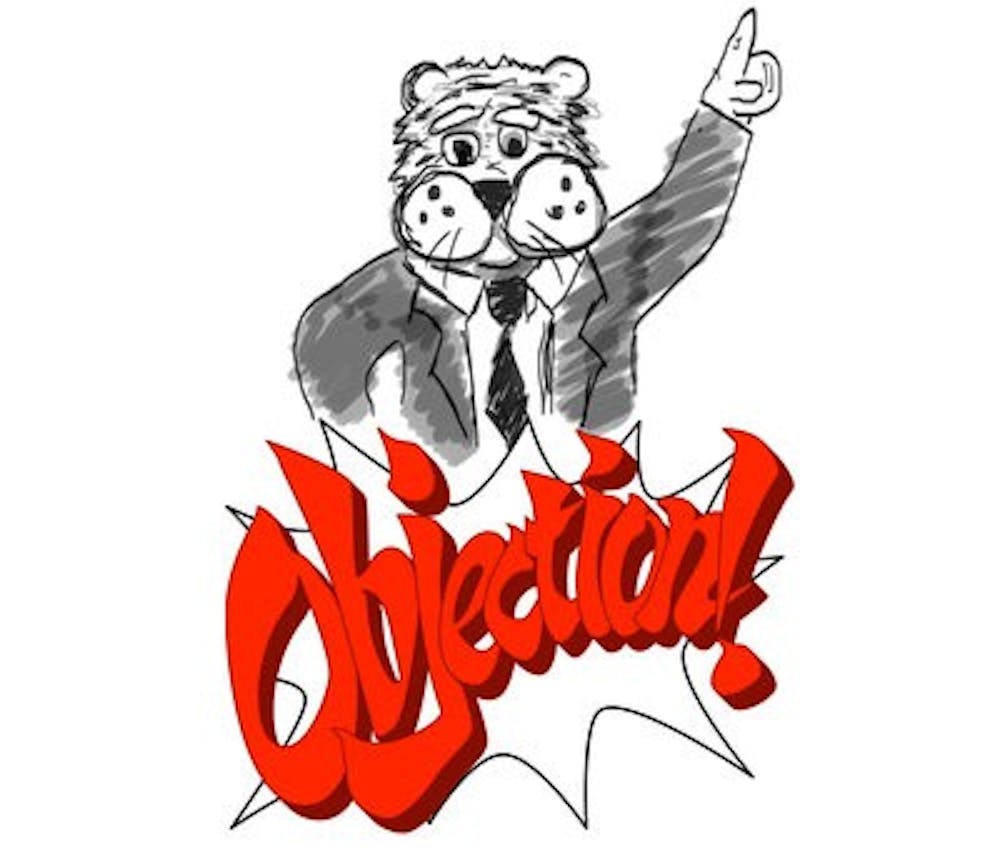Since its formation four years ago, Auburn's mock trial team has been arguing its way to competitive success in the fictional legal world.
"The original team was formed by a group of about 20 students who enrolled in the Mock Trial Competition class offered by the Department of Political Science in the spring semester of 2008," said Dorothy Littleton, practitioner-in-residence for the pre-law scholars program. "I was their teacher and became the faculty adviser for the team. I helped the team organize and form a charter, bylaws and become an SGA-recognized academic team."
The team competes as a member of the American Mock Trial Association, which provides a specific structure for the team's efforts.
"In August the AMTA publishes case packets that all teams use with affidavits of witnesses, case law and statues," Littleton said. "The team practices all through the fall semester in preparation for the first competition in February."
This preparation is extensive, as the team is expected to be ready for any possible scenario.
"We don't know until 30 minutes before we go in whether we're doing prosecution or defense," said Justin Clark, senior in political science and French and last year's team president. "We don't know who we're going to see or what they're going to call. We prepare all year for all these possibilities.
"It goes back to learning to think on your feet. Our judges will rule like real judges. Sometimes they will sustain something just to see how you react to that. The point is to be prepared for everything."
Though the cases are fictional, real rules of the court of law still apply.
"We follow AMTA rules of procedure and rules of evidence," Littleton said. "Those rules are based on federal rules used in our U.S. courts. I would say they are a condensed version--not different\0xAD--\0xAD\0xADbut not all of the rules come into play."
The AMTA allows participating schools to bring two teams to competitions, but organizes proceedings so they won't compete against each other.
Auburn's group divided into an orange team and a blue team.
"We have scrimmages against each other during the year," said Paul Bergan, senior in microbiology and German and current team secretary and president two years ago. "Most of the time we're working as an independent team, but there are times that we get together as a club and talk about what everyone's come up with. For the most part, it's teams individually. One team's successes are not dependent on the other team's."
This system has brought them success in competition.
"We won a bid to the opening round of a national competition in 2010," Littleton said. "We have won several outstanding witness and outstanding attorney awards. This past February at the regional competition, Justin Clark and Kyle Scholl won the outstanding attorney awards. The team competed in a YMCA competition (last spring), and they won best prosecutors team."
Though the mock trial team requires a great deal of time and effort from its members, participants insist the benefits outweigh the costs.
"It's an extremely important thing on a law school application to have," said Taylor Hardy, junior in philosophy and English and president-elect of the team. "I knew I wanted to go into law, but when you pick a major here it's kind of a shot in the dark. You don't get the full experience of what you're going to be doing.
"We've learned courtroom procedure, practiced rules of evidence, learned how to actually handle and put in evidence and essentially learned how to try a jury case within reason. We do a lot of debate, analytical reasoning and deductive reason. It's helped me beyond belief with my classes and public speaking in general. It's the closest you're going to get without actually trying cases in real in life."
Jim McLaughlin, municipal court judge for the City of Auburn and the team's coach, expressed similar sentiments.
"I think it's an invaluable public speaking experience," McLaughlin said. "You can take your public speaking class, but that only gets you so far. There's a whole lot of repetition and a whole lot of out there public speaking. There are great benefits for people interested in going to law school or figuring out if they want to go to law school. It gives them a leg up on the competition because they'll already know a lot about logic and legal reasoning."
Members even say the benefits go beyond future law careers.
"It makes you into a much better presenter than anything else I can think of," Bergan said. "As a science major I had to present research to many audiences. It teaches you to be much more comfortable and to come out from behind podium to give the most enjoyable presentation. It teaches you to interact with the audience.
"It will be beneficial throughout my career since I want to go to grad school. I want to be a research scientist, and maybe a teacher, so there are a lot of presentations ahead of me. It works away your nerves, makes you much more confident in your subject and just an all around more natural speaker."
Do you like this story? The Plainsman doesn't accept money from tuition or student fees, and we don't charge a subscription fee. But you can donate to support The Plainsman.





